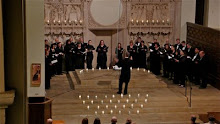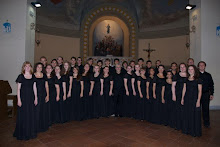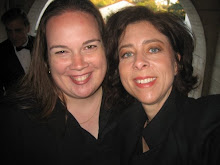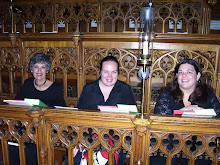The Audition
**This was easily the hardest audition I ever went through. It was easier getting in to grad school! I want to outline the requirements and add my experiences with the process as well.
May 2013 the audition materials became available online, outlining the three phases of the audition.
Phase I: Application and Recorded Audition
A. The Recording
1. Select one of three hymns
1. Select one of three hymns
- Abide with Me
- O My Father
- I Need Thee Every Hour (I chose this one.)
- Sing one verse, without accompaniment, in your natural singing style. Play and announce beginning and ending pitches.
- Sing the first few measures of the song with a straight tone. (No vibrato.)
- Sing the first few measures of the song sotto voce. (Quietly.)
- Sing the first few measures of the song fortissimo. (Loudly)
B. Complete the application. (This was the easiest of the three initial parts.)
C. Bishop's Confidential Recommendation
My bishop was asked to make sure I met the following requirements.
- Is a member in good standing and qualify for a temple recommend.
-Is an active member of her ward.
-Has no conflict between family responsibilities and choir membership.
-Is a worthy representative of the Church in all personal actions.
-Can otherwise accept what the First Presidency considers a missionary calling.
- Is between 25 and 55 years of age.
- Resides within 100 miles of Temple Square.
- Is in adequate health.
- Able to commit to maintaining the required levels of attendance while being able to take care of family and work responsibilities.
**Even though I had a couple months to turn the CD in, I found myself coming up with reasons to put the recording off. I could always practice more, be in better vocal health etc. I eventually sat down, finished the recording and mailed it in on August 14th, 2013. The directors received just short of 250 recordings.
September 17, 2013 I received a letter stating I was invited to take part in the next phase.
Phase II: Musical Skills Assessment Saturday Oct. 12, 2013
Preparation for the assessment included a text we had the option of borrowing from the music library. (I made sure to get a copy since I've seen different terminology and even explanations for the same theory.) That text became my best friend over the next month. I made sure to memorize all the terms and practiced all the concepts.
"The Musical Skills assessment is designed to measure your aptitude in music theory and related concepts which are essential to choral singing."
We were tested on
We were tested on
- Notation of Pitch
- Time Division
- Time Signatures
- Intervals
- Basic Scales
- Major Scales
- Minor Scales
- Key Signatures
- Triads
- Music Fundamentals (written)
- Tonal Memory (aural): Listen to a solid chord and arpeggiated chord. Decide if the first, second, third, or fourth note of the arpeggiated chord changed from the notes in the solid chord.
- Melody Recognition (aural): Listen to a melody played alone, then harmonized. In the harmonized version, decide if the melody is in the highest, middle, or lowest part.
- Pitch recognition (aural): Listen to the key tone (tonic, root) and determine the pitch of the second note. Decide if the first, second, third, or none of the pitches following the key tone is the pitch shown.
- Major-Minor Mode Discrimination (aural): Listen to the two chords in question and decide if they are major or minor. (Some of the chords are inverted making it a little more difficult.) Then, listen to a phrase and decide if it is major or minor or changes mode.
- Feeling for Tonal Center (key tone, key center) (aural): Listen to 4 chords of the key. Then listen to three tones and identify the key tone. Then, listen to a phrase. Decide which of the notes is the key tone.
- Auditory-Visual Discrimination (aural and visual): Listen to 4 measures. Identify which measures are played differently in pitch from the notation. Then, listen to 4 measures. Identify which measures are played differently in rhythm from the notation.
- Musical Aptitude (aural): Short musical statements (like 8 measures!) It is played a second time and you have to identify whether the second time varied rhythmically, tonally, both, or not at all. (This was the hardest section for me. The example was random and long and the difference could be a single note.)
I left the exam not exactly confident which is pretty unsettling.
October 29, 2013 I received word that I had passed at least 80% of the assessment. They sent our score sheet along with the letter. I was pleased that I was "strong" in most areas and only "weak" in one. (I know it's the section I talked about above.) I was now invited to participate in the next phase.
Phase III: In-Person Vocal Audition November 5, 2013
**That's right. Just one week after receiving the letter.
The night of the live audition we filled out some paperwork and met for a brief interview with the choir president. The only thing he asked me was why audition for the Choir now?We were ushered downstairs where we were to sing for the Music Director, Mack Wilberg, Associate Music Director, Ryan T. Murphy, and our accompanist. We were allowed to prepare any hymn we wanted. I chose Love One Another. (It just felt right.)
I was extremely nervous. The only other time I get that nervous is singing solo in church. I was less nervous after I started the hymn. We were also asked to perform vocal exercises showing our flexibility, timbre, rhythm, musical memory, tonal consistency, and range. Even though I put Alto I on my application, I could tell they liked that I had a lower range as well. Mack Wilberg asked if I've sung second alto. I told him I usually sing whatever the director needs. (Brownie points?) The truth is second alto is like Home Sweet Home! Even though all my voice teachers were convinced I'm a soprano (dramatic soprano). We were also expected to sight-read. Usually in sight-reading exams you have a few moments to look over the example first. This was not the case. Mr. Wilberg said, "look at number 8. Here's your starting pitch. Ready and..." SING! Just about enough time to determine if I was starting on the tonic or not. I know I missed some but I was able to correct them on the next pass. And at least I nailed the tri-tone! Woohoo!
I didn't know what to expect. I knew I had sung a little shaky, thanks to the nerves, and I know I didn't ace the sight-reading. I didn't know what they were looking for or where I fell in the spectrum. I knew I had to prepare myself for the possibility that I was not accepted into the choir. I knew I had to remove all pride from the equation (which is hard to do for performers.) I knew that whatever happened I would be stronger for the experience and had a new respect for the level of musicianship the choir members employ.
November 22, 2013 I received my admittance letter into the choir. It still doesn't feel real. I can't believe I get to be a part of such an amazing organization. An organization that has been around since 1847! 1847!!! I felt prompted to share the entire experience on Facebook and posted my acceptance letter. I thought my family and a few close friends might click "like" or comment but I was floored and humbled by the outpouring of love and support. I had never experienced anything like it! I truly feel my Savior's love.


.jpg)





























No comments:
Post a Comment